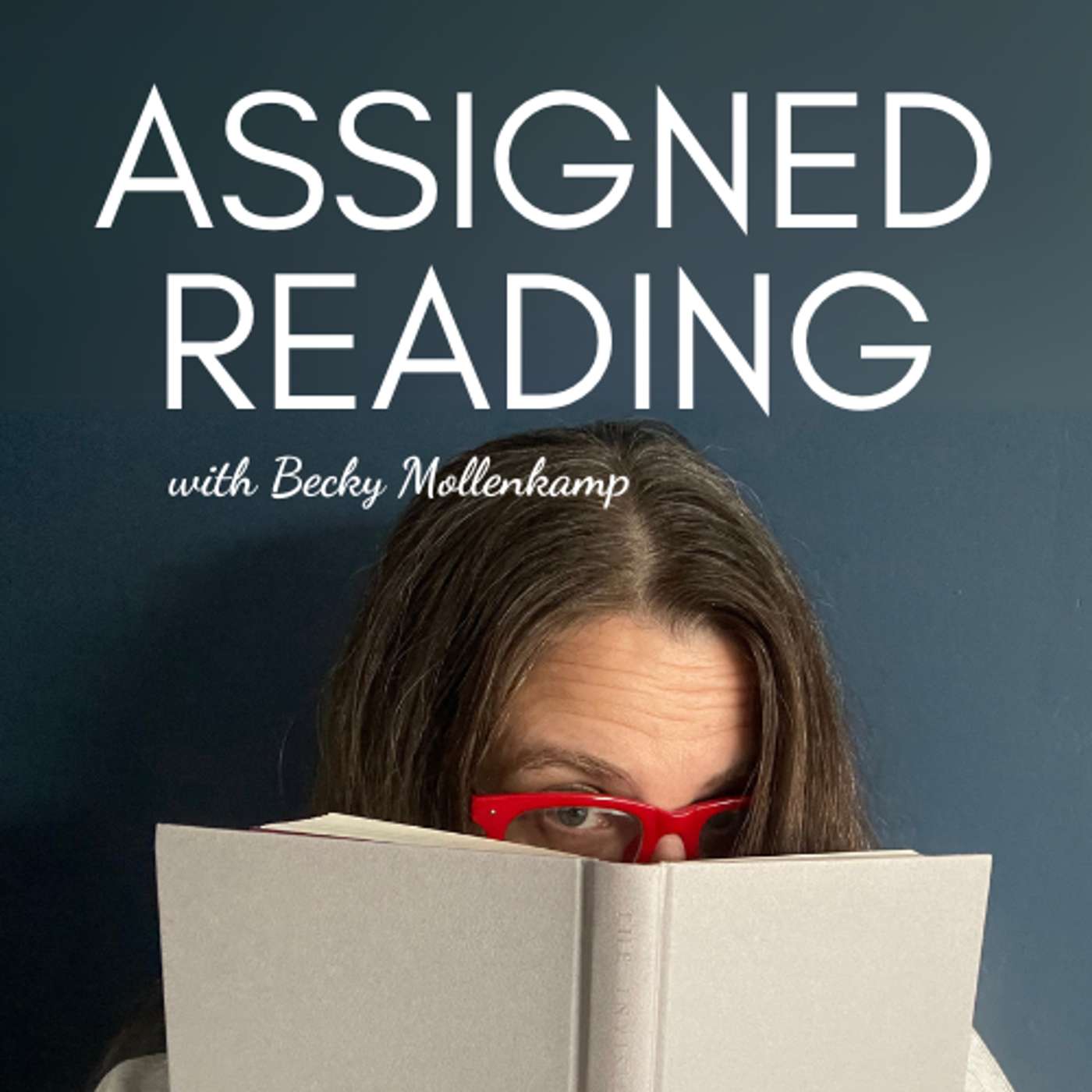
Mindset Unlimited: Tips, Tools, and Inspiration for Women in a Time of Change
Your Mindset Unlimited is a podcast for women navigating professional and life transitions who are seeking to release learned limitations and build a more holistic, liberatory version of success.
Your Host, Valerie Friedlander, is an ICF certified coach, sociologist, intersectional feminist, artist, business owner, and mom. Based in Chicago and supporting clients world-wide, she helps high-achieving women transition into their next chapter of life with clarity, confidence, and self-compassion. lead with intention, and create their definition of success that honors all aspects of their life.
In this podcast you'll find tips, tools, and inspiration to help you release the internalized limitations cultivated by our social system imbalances and lead your life with more ease and joy.
Some of the topics you'll find here are: finding fulfillment, habit shifting, motivation, time management, money mindset, stress management, impostor syndrome, productivity, work/life balance, communication, boundaries, leadership, social activism, burnout, building a business, motherhood, and more.
You can find out about Valerie and her work at www.valeriefriedlander.com
Follow her on most social media @unlimitedcoachval
Sign up for her email list at www.valeriefriedlander.com/signup
Books referenced on the podcast can be found on Bookshop.org
https://bookshop.org/lists/unlimited-podcast-book-recommendations
Mindset Unlimited: Tips, Tools, and Inspiration for Women in a Time of Change
Learn How to Apologize
Use Left/Right to seek, Home/End to jump to start or end. Hold shift to jump forward or backward.
Learn how to apologize meaningfully, if you truly want to be in integrity. Otherwise, you will likely end up repeating the harm that led to the need for an apology in the first place. We’ve seen this recently with a number of highly visible people. This isn’t surprising since, like so most aspects of relating to others in a healthy way, apologies aren’t something we’re taught how to do. However, I do find the blundering of the apology particularly ironic with those in the self-help space because the root of a meaningful apology is in personal growth. We all make mistakes. You don’t know what you don’t know, so mistakes are necessary for us to learn to do better. And that is the key… learning to do better. A true apology sets the foundation for being more of the person we say we want to be.
In this episode of Unlimited, I’m exploring the mindset and action when you learn how to apologize in a meaningful way.
Some of what I’ll cover in this episode include:
- When not to apologize
- Saying “it’s okay”, when it’s not okay
- Self-serving apologies vs healing apologies
- Humility vs Humiliation
- Creating space for learning and personal growth
- Setting healthy boundaries
Thank you for listening! If you enjoyed this episode, take a screenshot of the episode to post in your stories and tag me! @unlimitedcoachval
I love to hear your thoughts and I'm always happy to answer any questions.
You can shoot me an email at valerie@valeriefriedlander.com or DM me on Instagram
AND don’t forget to subscribe, rate and review the podcast and tell me your key takeaways!
LINKS FROM THIS EPISODE:
Stop Being Nice and Start Being Resilient
YouTube – Friday Night Live with Emily D. Baker
Understanding Your Stress Language
Create Your Flow Course
CONNECT WITH VALERIE:
Facebook
Instagram
Get email updates!
Work with Valerie!
Hello, my friends and welcome to another episode of unlimited. Today we are talking about apologizing. It is a very important topic and there is a lot to it. So we're going to be kind of scratching the the most important surfaces in my opinion. It's been getting a lot of attention recently because there have been a lot of people who have been called out for perpetuating white supremacy, patriarchy, all kinds of things that are doing harm in the world to other people. And how it's being handled, has been kind of problematic. Now, I'm not going to talk about specific people. But I do want to talk about the idea of apologizing, basically, like, what is the essence of apologizing and try and clear up some, I guess I would say misunderstandings about what apologizing is or how to apologize in a way that is actually useful. And instead of apologizing in ways that actually just kind of perpetuate the problem. And so you probably could have just not anyway, like, there's just there's a lot of stuff there. So we're going to talk about apologizing in terms of what is an apology? What is that? Why do people apologize, and the roots of apologizing, and how you apologize in a way that is actually helpful and moves things forward, both for you and hopefully the person that you have harmed and you're apologizing to. So like I said, there's a lot here and I am trying my very best to be mindful of time several of my episodes over the past, the past few episodes have been longer than I had initially set out to do. I'm not apologizing for that. However, I am trying to be mindful of it. So without further ado, let's get started. Hey there, I'm Valerie Friedlander, certified life business alignment coach, and this is unlimited. This podcast bridges the individual and the societal, scientific and spiritual, positive and negative, nerdy and no, there's just a lot of nerdy, come on board and let's unlock a light that's as badass as you are. The topic of apologizing is a natural offshoot from my last episode on tact, and about removing niceness from our way of doing things and being resilient. And part of being resilient is about processing emotions, and also being able to allow for other people to have emotions and allow for other people to share with us and to learn from them. And we honestly can't have change happen without hurt feelings. Actually, we just can't do anything without hurt feelings. Because no matter what interacting with each other, whether you're trying to be nice or not, there will be feelings hurt and not just feelings, but niceness causes real tangible harm to people by blocking important necessary conversations. So we need to learn how to do things differently. And a key component of this is learning how to apologize and actually apologizing in a way that is helpful and productive instead of continuing the harm that was done. First, I want to talk about apologize, either two types of apology. There is the intended apology where you intend to apologize where you intend to say I'm sorry, for whatever it was, and there are pieces in that that I'm going to come back to because that breaks down into helpful and harmful kinds of apology. But I do want to make sure that we touch first and foremost, especially because as a woman, one of the things that we're trained to do is apologize. And one of the people that I thought of when I was thinking about talking about apologizing who recently had to apologize and there's question over how well she did it has a book all about not apologizing, which I have not read so I cannot speak to that book. So I'm not going to speak specifically about what's in that book because I don't know. But there's a underlying thing to that which is about how women tend to apologize For being, and that's the other type of apology, which is kind of that unconscious apology. It's the apologizing when just because just because that's what you do. So like you bump into somebody, Oh, I'm sorry. Or like, you say I'm sorry, just because that's part of your vocabulary that you use lots of places. And ultimately, it's a learned way of communicating that a lot of women have about apologizing for being. And that is not the kind of apology that we're ultimately talking about in this episode, but I wanted to make sure I engaged it because it is such a thing that we need to unlearn about apologizing for ourselves apologizing for being And so making a apology, because you did harm is different than that automatic apologizing for being that is something we need to stop doing. And noticing how often you're apologizing, and where you're apologizing. And not doing that when it's not because harm was done. It's because you just read there. And if you're listening, and you know what I'm talking about, that it's it's a problem. It's something we do a lot. So I wanted to highlight that first and foremost, because I want to make sure you know that that's not what I'm talking about. connected to that is saying it's okay, when it's not, that goes back to that whole trying to protect and take care of other people's feelings. It's okay, if they feel bad, it's okay. If they feel hurt, or upset that they did something that was hurtful to you. That's okay. They're allowed to feel that having those feelings is part of how we recognize that we need to do something different, or improve the way we do things, or accept responsibility for our actions. So when we say, Oh, it's okay. And it's not we continue that kind of dynamic, whereby it's thought of as okay for people to not do something different when they caused a harm, even if it's a small harm. So I really advocate using the words, I forgive you, versus It's okay. Because that acknowledges that action that happened was not okay, that was hurtful or problematic in some way that acknowledges that that there is something to apologize for, and acknowledging it, and releasing it is different than negating it, negating that something happened. Okay, so, I like to emphasize that in addition to that idea of learning to not apologize for being or for growing, and learning and existing, that a lot of women learn to do. Now, on to apologizing so the other end of things where you're the one who has caused the harm, and apologizing for it. There are two different ways of apologizing here. One is surface it's a surface apology, whereby you say words, in order to try and make yourself feel better about what happened. It's about getting it saving face, right, it's about saving your image and protecting yourself against feeling humiliation, shame, feeling that the yucky feelings so it's to try and it's trying to smooth it over and make it go away. It does not involve doing any kind of real work to acknowledge harm and change behavior. It's it's very much about the image and protecting your image protecting your face protecting your brand protecting whatever external to you. So the focus is on controlling or managing the the reception, right it's managing other people. And this is what a lot of people are getting called out for is making that kind of surface apology that doesn't actually engage the harm that was done and ends up ultimately perpetuating it because it's it's not genuine. And I mean, how do you tell that something is genuine? Well, it usually follows with action. It usually follows with accepting responsibility for the harm that was caused having awareness around that harm, having awareness of your part of it. And being able to own the mistake and own the consequences, the harm of that mistake, we all make mistakes. If you're not owning that mistake and owning the consequences of that mistake, which aren't just consequences to you and your image, but to another person or people, then you're not actually allowing for change to happen. there's a there's a depth that needs to occur. So then there's the other type of apology, which I would equate to an amends and amends is action. It's not just words, it's saying words, but there's action associated with it, there is a self awareness that occurs with an amends that it has to and an immense is about you. And I know that may sound a little odd, it's like, well, isn't an apology about fixing it with the other person or, you know, making it better No, actually, actually, a true amends a true deep apology, not just a surface apology, but a deep apology is about you, and your relationship with yourself. That's That's what a real amends is, it's not actually about the other person, it's great if it can help the other person. And it can provide relief and healing for the other person. That's fabulous if it can. And of course, that's often the hope. But a true amends a true apology is about you owning your own stuff, so that you're in charge of it. I mean, a true amends is essentially about empowerment, it's about owning your own power in the world. And that means taking responsibility for the things that you do and your own emotions and the way that you act and what you do with that. My deepest learning about apologizing and about amends came from 12 step, which if you're familiar with 12 step, you may have already noticed. But Step nine is about making direct amends, except when to do so would injure someone, the person that you're making amends to or other people. And there's a lot of work around that before you get to that step. I mean, that's, that's Step nine, there are 12 steps, that's nine. So there are more things to happen before you actually make the amends. And also that clarity around, look, you're you're making the amends, unless it would hurt the other person more to make that direct amends. Because there are times when doing something out loud, revealing additional information that maybe that person didn't know, doesn't need to know, could be more harmful to share that. But your actions allow for that amends to happen because you are allowing yourself to grow, you are allowing yourself to change it is about being in right relation with your best self, your higher self, with God with the world with whatever it is that and that idea of right relationship is seen in multiple places like it's something you'll see in a lot of faith based talks about being in right relationship with God. And it's something that I've heard from my Quaker upbringing about being in right relationship with the earth, which is ultimately about sustainable living, when we live in right relationship, we are acknowledging our connection to each other to the earth, and that we need to create a sustainable ecosystem that honors all of our well being. So it's that understanding and the idea of right relationship is about owning my part of the ecosystem. So I think about the ideas of humility, which I think tie into this and the ideas of an apology essentially being a admission of wrongdoing, an admission of harm, and a commitment to do something different. You can't commit, to have somebody else do something different, or be different. The only person that you can commit to doing something different is yourself. So ultimately, an apology is it has to be about you and owning your own part of the dynamic in a relationship. Be it with your audience, if you're an influencer, or with another person, family member, a friend. The idea of humility is also about being in right relation. It's about humility, that the definition of it is freedom from pride or arrogance, which is essentially your ego. It's about recognising equality, versus the idea of humiliation, which is to be reduced to a lower position. So what happens with people, especially when there's a public face, it's it's even bigger. But even on an individual level, that experience of humiliation is, something's being done to me and I am being reduced. So it feels like a threat, it feels like something's happening to you. So it's natural, to have that desire to automatically put up a barrier and be like, Nope, I am not going to be reduced, I'm going to make this okay. And and make you forgive me and and be okay with me. Like, I do not want to be humiliated. So it's that refusal naturally puts up that survival mode, which creates a refusal for that self reflection or refusal to go there because it feels so painful. When we have humility, we can accept that experience as not being about who we truly are, our worth or value, as a child of the universe, as as a being. And if we're in right relationship with ourselves and other people, instead of being on a pedestal or thinking of ourselves as above, then you can't be brought down. If you are in right relationship with the ecosystem, that you exist in the the other people, the places, the situations that you are valuable, and they are valuable, and there's an equal acknowledgement of value, then you're not going to be humiliated, you're just going to take in information. And maybe maybe there'll be some embarrassment, or, or upset. I mean, most people don't like to think that they've hurt somebody else. So knowing that can hurt that can be painful. Knowing that you then have an opportunity to do better, because we always have an opportunity to do better, allows you to then take that humility, and do something with it to do the reflection that I talked about in the tact episode and that talking about what is this bringing up for me? What am I believing about myself? What am I believing about the other person? What story is what rules are present, and engaging those? That's your part, that's the only part that you can control is your part. Now I was on a YouTube Live earlier this year where the topic of apologies came up. And someone in the comments asked about what if I'm interacting with a family member. And this person always makes me the bad guy. I apologize. But I want to be like, you know, I'm sorry. But you also did this. And what's the problem with that? The thing is that that kind of apology is is still focused on the other person, it's not about owning your side of the argument or whatever is happening, it's still, when there's focus on controlling someone and getting them to do something, then it's still that surface instead of your own self. So what owning your part does is it allows that person to be where they are. And then not only are you able to apologize for your part, because you're owning your part, but then you have the ability to set boundaries. And say, I'm sorry, I hurt you, I don't want to hurt you. In order for me to not do that. We need to not interact when you haven't eaten. Anything that comes up in my family, you know that that's, it seems light. But you know, I've seen it like, I will not go to a party where you are going to drink or where there is alcohol, because I will not show up as my best self around you when you've been drinking. That's not controlling the other person. That's not saying you can't do this. That's not saying I'm sorry, but you keep doing these other things. It's owning your own space and saying, I am choosing to do this because I want to show up to this relationship as my best self and i i know that i'm not going to do that when this dynamic is present. So apologizing isn't not having boundaries. It's not saying that what the other person did is okay, it's recognizing what's yours and what's not yours and taking ownership of what is yours versus trying to control somebody else. And in a lot of ways, there is way more However, in that, because you can't actually control somebody else, not really. So when you're focused on owning your own stuff that allows you to grow, that allows you to take care of yourself that allows you to protect your space that allows you to show up as your best self, instead of being in situations and hoping that somebody else will do something different so that you can have an experience of life. I'll tell you a story. For me, that gave me a really big lesson around, apologizing. And it was kind of direct actually was in in college, a good friend of mine, and I were having a conversation and I said something that was hurtful to her. And she told me, she told me that I had hurt her. And I went, Oh, I'm sorry. But you know, here's why I did it. Sorry, I excused it. And you know, you also did this. And she's straight out said, I cannot accept an apology where you make excuses, and then blame me that I won't accept that apology, because it's coupled with those things. And I don't want to talk to you anymore. And that was hard, because I wanted to fix it. And I couldn't, because she didn't want to talk to me anymore. I couldn't do anything. She basically was like, no communication at all. So I spent several days trying to figure out how to make her Forgive me, I recognized that I had hurt her. And that I had done this badly, I pointed my finger at her instead of just owning my own stuff. Now is that to say that, that what I had brought up was not true? Well, not necessarily. However, it wasn't necessary. It wasn't useful. So what I have said it if I hadn't been triggered, by trying to defend myself from the hurt, that I felt for having caused her hurt, no, I probably wouldn't have said it. At least not like that. And so I spent ages trying to figure out how do I get her to forgive me. And eventually, I had to recognize that I couldn't, I could not make her Forgive me. All I could do was recognize what I had done wrong, what I had done that caused harm, and do better. And her forgiveness was her choice. That was not something I could control. And that was something that I had to let her own. And that very night, she came up and started talking with me again, and had forgiven me for what I had done. And that was a huge lesson that was a huge lesson in letting go of other people, and what their decisions and choices are, and really owning what an apology meant. And what that looked like owning my part of that instead of it being about control it being about me. And that was ultimately what the most important thing was me being in right relationship with the person that I was being in the world, and the people around me. And sometimes that means people leave those relationships. Because either I'm growing or they're growing, or whatever. It's just that time. So back to the How do you apologize? It's okay to pause. You don't have to apologize right away. If you're in an argument with somebody just saying I'm sorry, reactively, you're most likely apologizing to control that person because reactiveness is about self preservation. So it's going to be focused on protecting yourself, rather than allowing yourself to take in information and grow. So it's okay to pause. It's okay to say I would like to stop right now. I need some time to think or whatever it is. Maybe it's it's as simple as like, I need to go use the bathroom. If you go back and listen to the stress response podcast, which is one of my early podcasts and talking about handling stress. There's some tips in there about taking space, but allowing yourself to to take that space to really process before you apologize so that you can ensure that if you're apologizing one, that it's not an apology for being an apology for taking up space. And like I talked about in that tact episode, the apology that I made was very much about controlling the other person in the dynamic, not because I actually felt sorry. For what I had done, because what I had done was totally normal is all about protecting his emotions and controlling him and, and the way he was perceiving things. So taking that moment to really think about what what do I need to see here? What do I need to look at here? What is my part and what is not my part, I have a section in my Creator flow course, that talks about emotions and owning your side of the street, and it does pull from some of that 12 step idea of like, create a column create a list of mine, not mine, right? It can be as simple as that, where you go, this is mine, this is not mine. And what do I have control over? And what do I not have control over? And then you get to decide, okay, what do I need to do in relation to what I do have control over. And if that means an apology, then you can give an honest apology, a thoughtful apology, where you are acknowledging your part, acknowledging specifically the harm that was done, or asking for more information, maybe you don't understand the harm that was done, doing your research to understand it, asking to understand it, whatever that needs to look like in that instance, owning that responsibility. And what you're doing to change. What you don't want to do is make excuses for having done whatever it is, and say how the other person is wrong to which is essentially like taking their inventory, like telling them, what is wrong with them. Anytime you want to look at what's wrong with somebody else and take their inventory, it's really a good opportunity to look at yourself and take your own inventory, which that that idea of an inventory also 12 step of the looking at, you know, fearless and searching moral inventory, which is step four, to look at what is my part? So this is a continuation of that idea of what's my part? And what's somebody else's part, but to look at? How did I participate in this, which can also help you with understanding what boundaries you need to set for yourself so that you can show up best in that relation? Because it's not that somebody didn't do something? It's simply that you can't control somebody else. All you can control is yourself. So when you can take that look at yourself and go, how did I participate in this? What is my part and show up to that show up to that part, admit the defects of character which could be learned internalized things, from society, from family from wherever that you need to unlearn that art of reflection of you being a good person, which is often how our brain processes Oh, this is me, this is them saying that I'm a bad person, this is me, oh, gosh, I maybe I'm not actually good enough in triggering the inner critic and that sort of thing. But actually going, this is information about how I can be a better person, what I can do differently, to be a better person, in relation to other people, but also, in my own life, how I can live a fuller, more joyful life, because I know that I am in right relationship with myself and the people around me and my higher power. And I'm showing up in a way that is continuously working to grow and contribute in a way that is helpful to the world around me, instead of harming the world around me. And again, it's a learning process. There's a lot of stuff in our society that we've internalized, that needs unlearning. And that doesn't make you a bad person. It just means that we need to do things differently, we need to show up differently. And this is again, where that resilience comes in, of being able to be resilient of being open and humble enough to take in information about ourselves, and to learn and grow and allow growth to happen. I love the idea of being a masterpiece in progress. to progress, you must keep painting. And sometimes that means you paint over things. Sometimes that means you erase sometimes, that means all kinds of things. And it's important to know that we're in progress. And we get to choose how we show up to that and the more work that we do around relations with other people and how we show up to other people acknowledging that we exist in an ecosystem, that what we do impact other people. And what they do impacts us, that we can strive to be our best self, which is an evolving process, you will never actually get there. Because life is a journey, not a destination, and all of that. But truly apologizing is, can be really beautiful, and freeing. It requires a willingness to be honest, and to really listen to other people and be in relationships with other people as equal people. And it's hard work, it's not something we're taught to do. This is this is not easy work. And it is part of why I do what I do. And helping people with that self awareness part so that they can show up as their best selves, and enjoy life more, to feel empowered to be able to make a difference in a helpful way. And I you know, notice I'm avoiding the words positive, negative, because I think they feed into problematic stories and rules and all of that. But to be able to move us forward in a way that is helpful, it's really necessary to do that self work to own your own life. That's why you know, my whole flow thing is, is rooted in the idea of full life ownership. When you can fully Own your life, then you can show up at choice, which is where your power is, when you're showing up at choice to the things in your life. And it allows you to grow. And it allows you to make more and more of a positive helpful impact in the world. So if that is something that you are looking for support with, then grab a spot on my calendar, it is a free session, to chat about what's going on for you and how I might be of support to you. There is no pressure here. Because what I'm here for is to help you make the most loving decision for you. Not about what I think but about you having that clarity within yourself. And so if you would like that, grab that spot. It is open there for you. And I will talk to you all next time. Thanks for listening. I so appreciate you being here. If you got something out of today's episode, please share it leave me a review, take a screenshot and post it on social with a shout out to me, send it to a friend or you know all of the above. Want to hang out more join me on Instagram, or better yet, get on my mailing list to make sure you don't miss out on anything new Remember, your possibilities are as unlimited as you are. Allow yourself to shine my friend. The world needs your light. See you next time.
Podcasts we love
Check out these other fine podcasts recommended by us, not an algorithm.
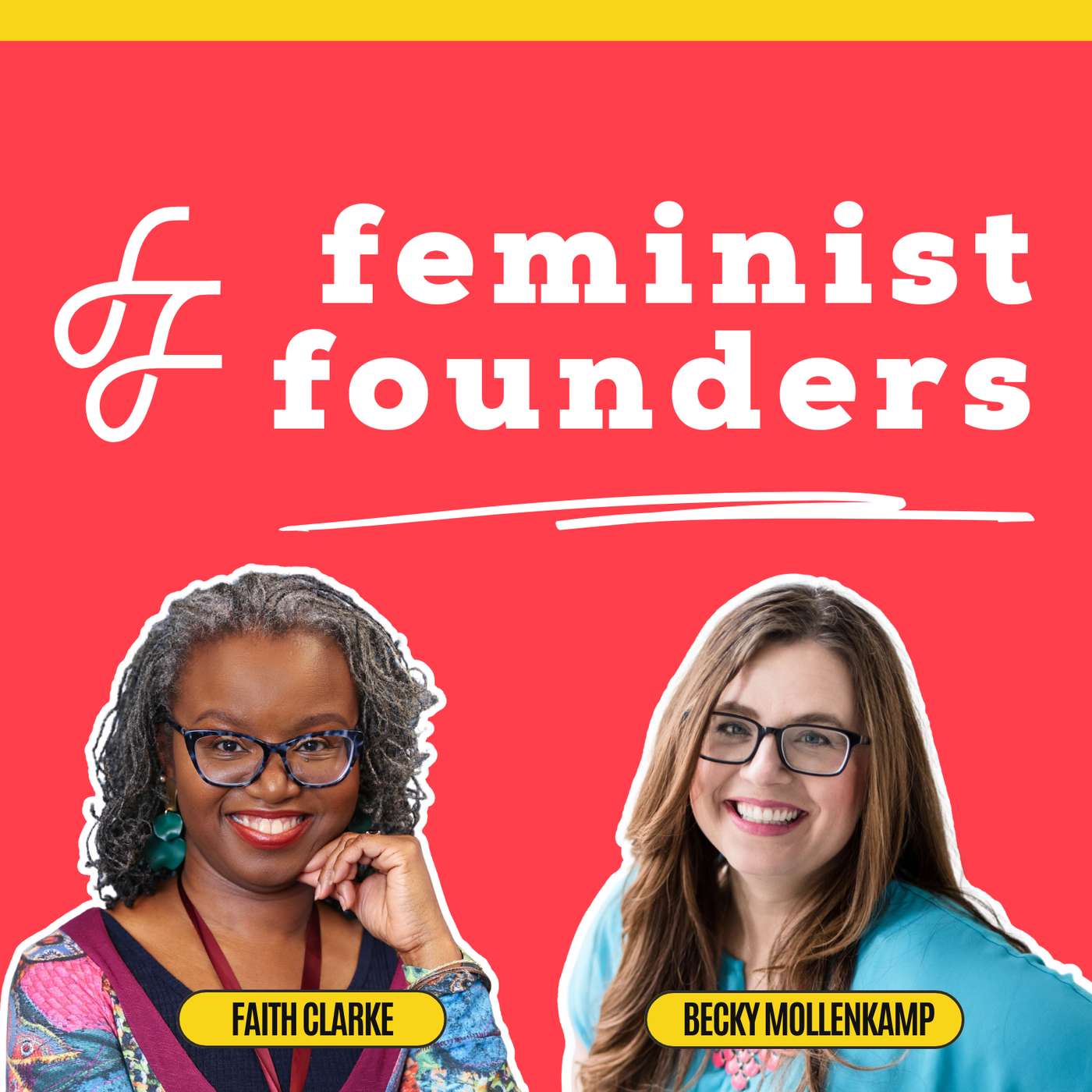
Feminist Founders: Building Profitable People-First Businesses
Becky Mollenkamp
Women Making Moves
Amy Pons
Queer News
E3 Radio
Nonprofit Mission: Impact
Carol Hamilton
Small But Mighty Agency: How to Grow Your Agency
Audrey Joy Kwan | Growth Strategist for Agencies
Disrupt Your Money
Meg K. Wheeler
Small Business Casual
Emily Aborn
Not Too Productive
Becca Rich
Messy Liberation: Feminist Conversations about Politics and Pop Culture
Becky Mollenkamp and Taina Brown
Empowered & Embodied Show
Kim Romain & Louise Neil
The Air We Breathe: Finding Well-Being That Works for You
Heather Sayers Lehman, MS, NBC-HWC, NASM-CPT, CSCS, CIEC, CWP
Careers at the End of the World: Reimagining Ambition, Work, and Your Job Search in Unprecedented Times
Jenn Walker Wall | Work Wonders Careers
The Passionistas Project Podcast
Pop Culture Passionistas
Humaning: The Shit We Need to Talk About
Steff Gallante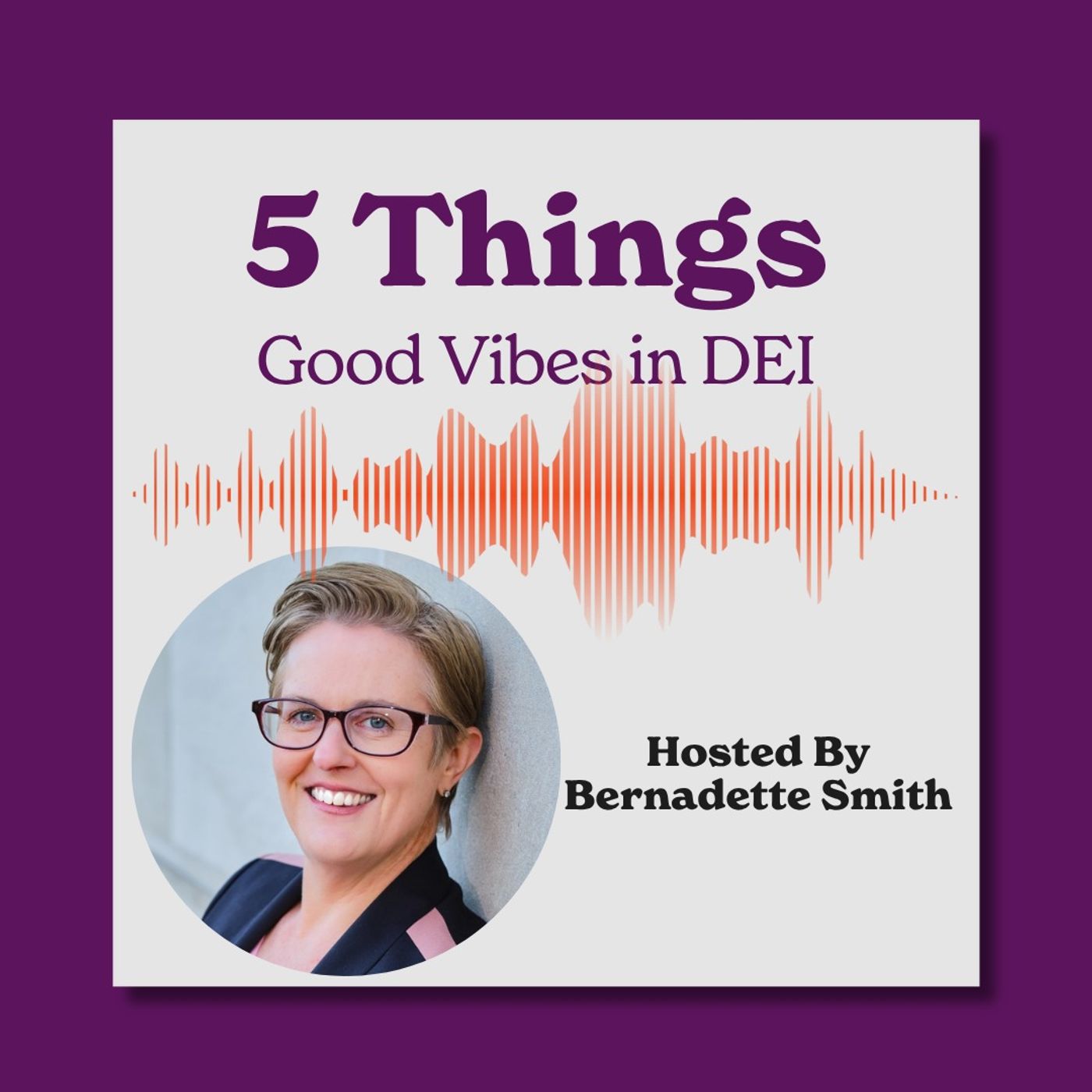
5 Things: Good Vibes in DEI
Bernadette Smith
The Art Of Imperfect Adulting
Amy Stone
Business as UNusual
BiCurean Consulting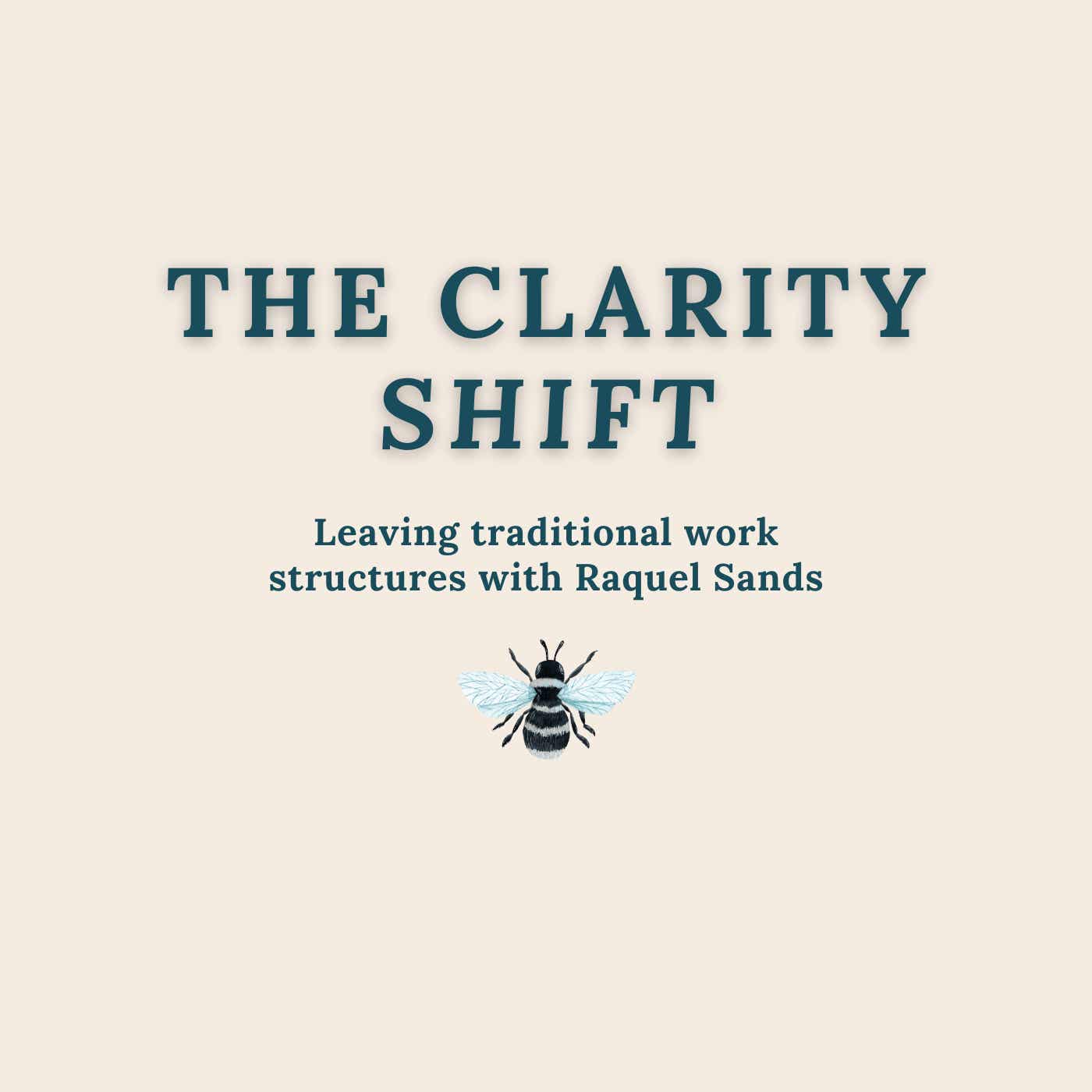
The Clarity Shift
Miriam Raquel Sands | Clarity + Alignment
Cozy Conversations with The Sister Project
Lauren Massarella and Michelle Anderson
Departure Menopause: Neurodivergent-Affirming & Weight-Inclusive Care
Melinda Staehling
The Empress and The Fool
Sarah Dittmore & Kaitlyn Gulock
The Good Pod
Jason Reed and Marissa Garza
Gratitude Geek | Business Education for Gen X Women Solopreneurs
Kandas Rodarte | Gen X Growth Coach for Women Solopreneurs
Mental Health Warrior & Neurodivergent Advocate
Amy D. Taylor | Mental Health Warrior & Neurodivergent Advocate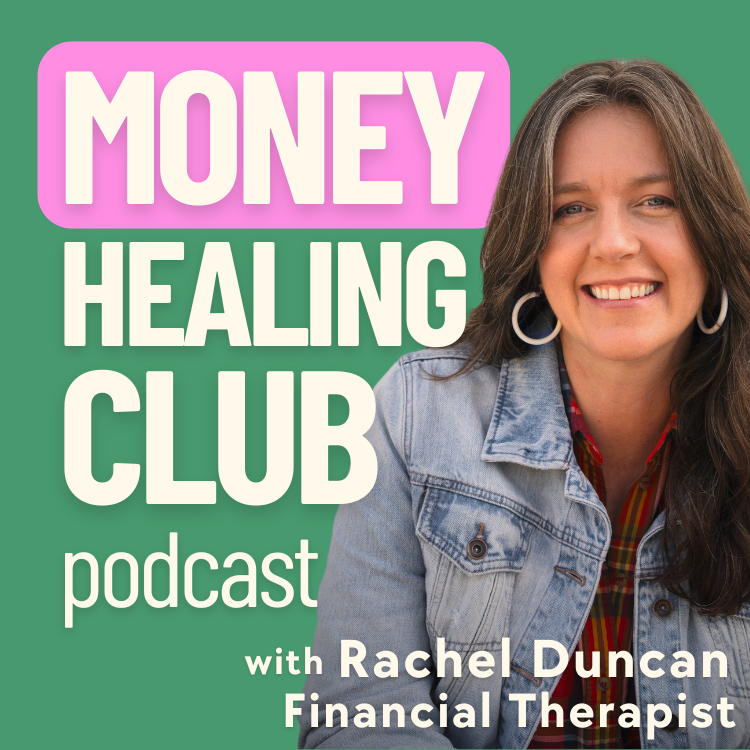
Money Healing Club Podcast
Rachel Duncan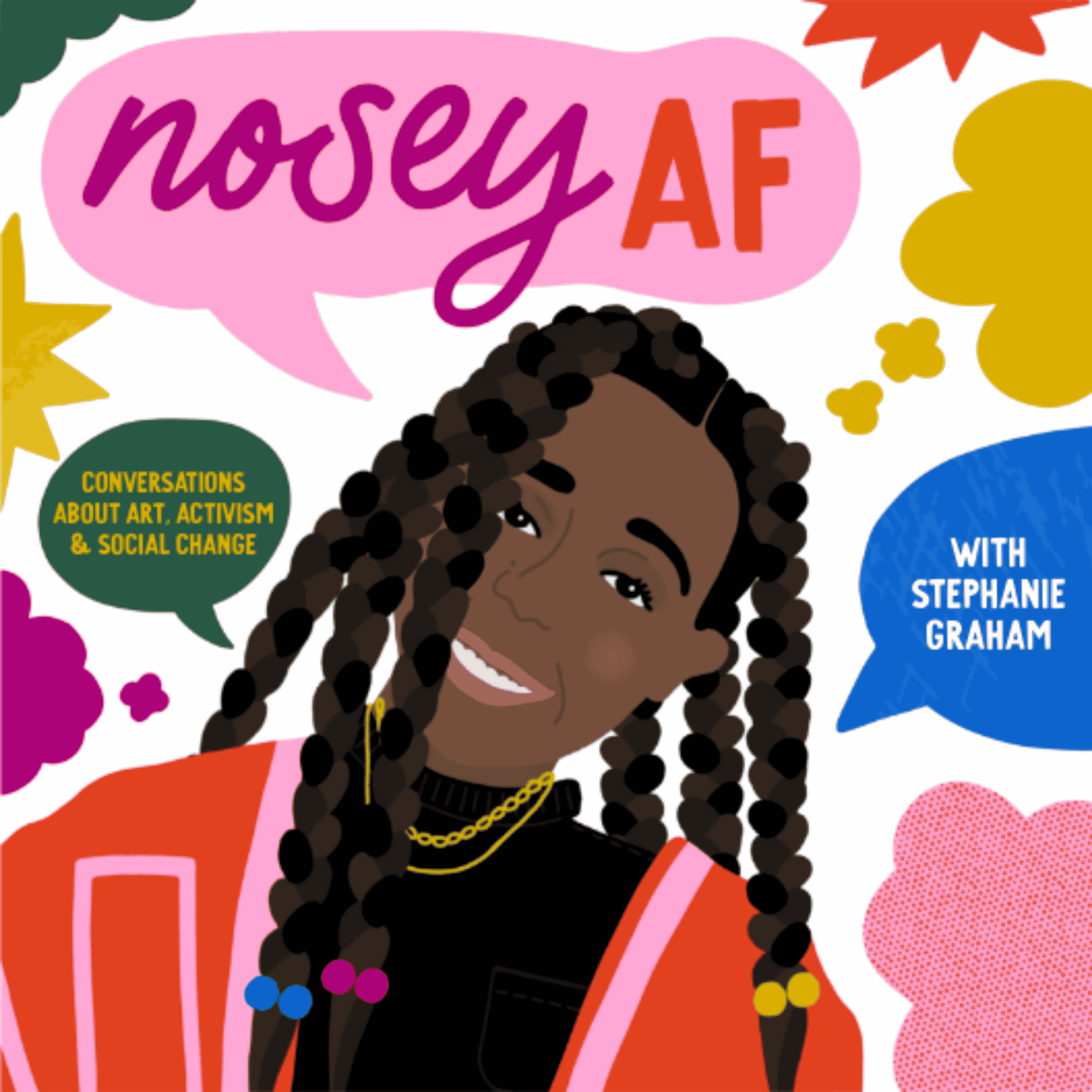
noseyAF: Conversations about Art, Activism, and Social Change
Stephanie Graham
The RestLab with Jordan Maney
Jordan A. Maney
Was It Chance?
Alan Seales, Heather Vickery & Broadway Podcast Network
White Homework
Tori Williams Douglass, Benjamin Faye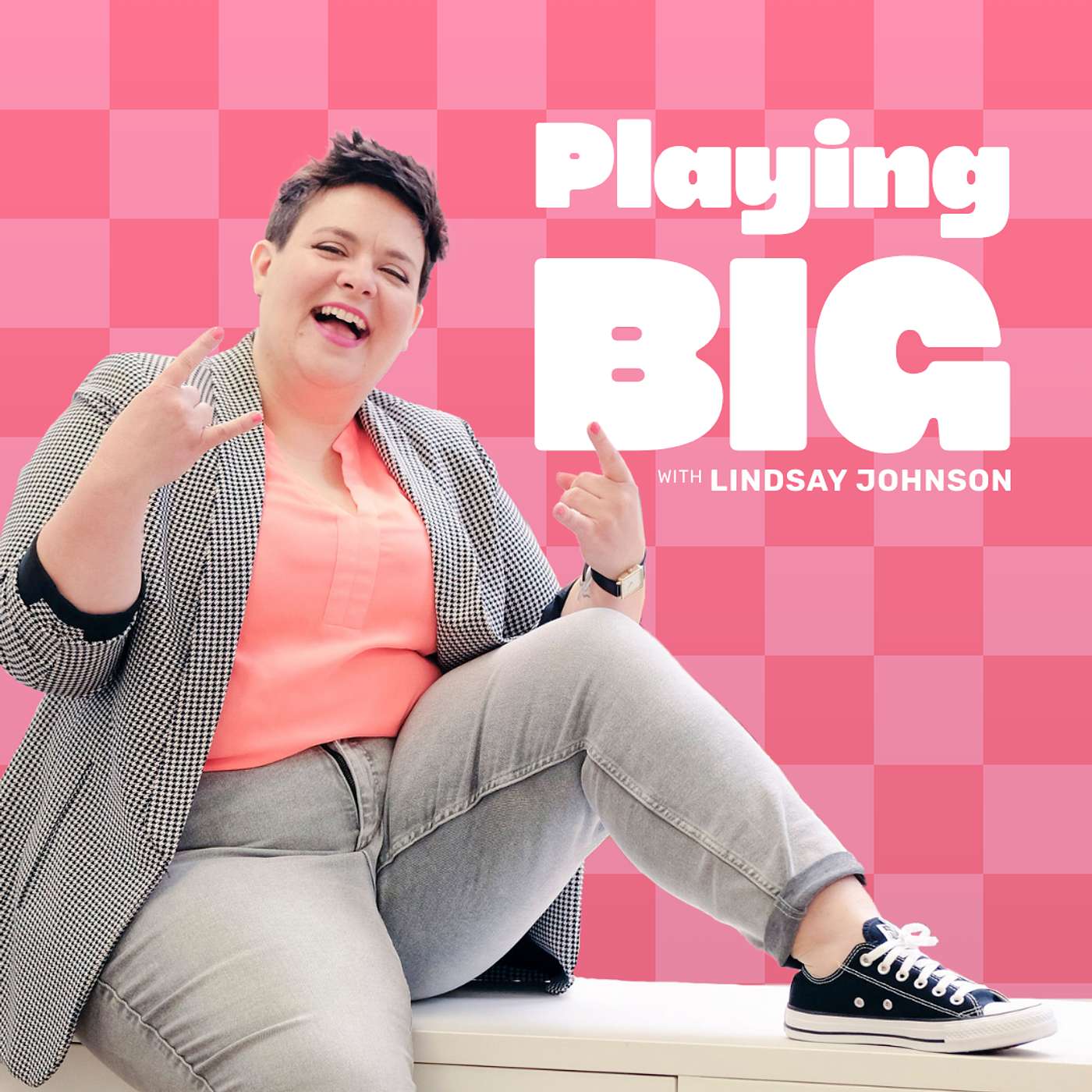
Playing Big with Lindsay Johnson
Lindsay Johnson, The Radical Connector



